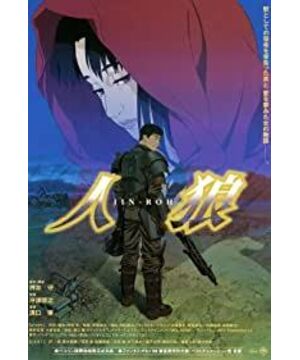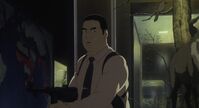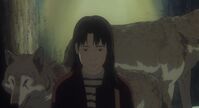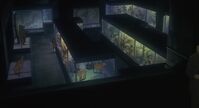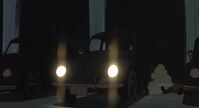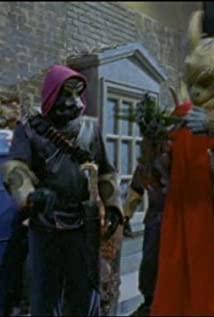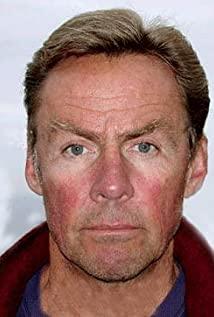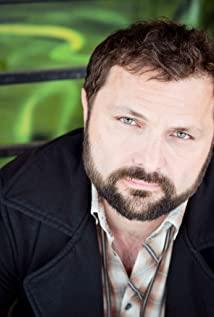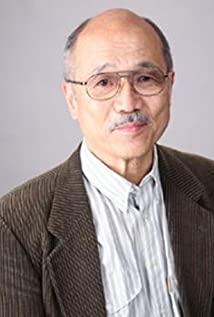The level of detail in this picture is comparable to that of "The Wolf" performed by a real person. It has a lot of emphasis on the political level. The background introduction at the beginning opens up a virtual society for us to rebuild after the war. Of course, it can be considered as a projection of Japan back then, and some plots seem to have actually happened, such as terrorism and underground guerrillas fighting against government forces. At that time, Japan's "Red Army" almost used this method to confront the government. In fact, although there were various social conflicts during the economic reconstruction period in Japan, they were not as intense as those shown in the film. It was just that Mamoru Oshii made the political conflicts of the year more superficial and sharp, which was more conducive to expressing sharp conflicts. Story development and characterization below. As an aside, I think the situation in the film is a bit similar to China: a large number of workers are unemployed due to the government's mistakes in stimulating economic growth, leading to increased social unrest. The opposition uses this contradiction to provoke violent conflict, while the government The foolish use of violent repression resulted in a vicious circle... Alas, it is simply a pessimistic prediction for China, and the authoritarian Japanese government in the film is much worse than it is today, I hope Oshii Mamoru will not become a great prophet.
The film depicts such a background for us, and it seems to show that in such a society, the price of living is to abandon the feelings between human beings, which also lays the groundwork for the cruelty of the later stories. The story unfolds in the competition of four political forces, the autonomous police - completely controlled by the government; the capital police mobile team - a high-equipment army organized by the government to suppress violent conflicts, but because of its strength, it is increasingly out of government control, and its tail is too big. Underground guerrillas—the opposite of the government, must guard against both the autonomous police and the capital police; Human Wolf Organization—this organization is very mysterious, they are scattered in various government departments, they have no clear political goals, they are just for the sake of For the sake of their own interests, their counterattacks are often fatal. A confrontation scene at the beginning of the film explains their relationship very well, and it also leads to an emotional entanglement. The autonomous police confronted the guerrillas, but the capital police were not allowed to intervene. As the hero of the capital police, "V" was punished because the guerrilla of the opponent was only a little girl and did not shoot in time. Bian Jian, who is Fu's friend, works in the autonomous police, but betrays Fu, and ambushes another guerrilla girl who surrendered - very similar to the guerrilla - as bait to lure Fu into having a relationship with him so that he can get there. It was revealed as a political step against the capital police. Unexpectedly, Fu was a member of the "Wolf", and he knew about all this for a long time. He trapped Bian Jian and killed the surrendered female guerrilla who had a true love for him.
It can be seen that all the characters in the film are in a state of deception and confrontation, which is a metaphor for human nature through politics. The only real relationship is Vu's love with the female partisan who was the bait. But this love is soon overwhelmed by a heavy reality. The story of Little Red Riding Hood, which has been transformed into a film, can be a key to understanding the intent of the story. Little Red Riding Hood drank her mother's blood and ate her mother's flesh, which is a metaphor for cannibalism among humans. The final victory of the wolf completely pierced the tender veil of this fairy tale (and our life). Those human beings who gave up their feelings and their joys and sorrows and trained themselves to be wolves became the ultimate victors.
But Oshii Mori seems to want to carry the tragedy to the end, which is the shattering of love. It is said that this is inevitable, but the bad thing is that love happens. If there is no love at the beginning, this tragedy will end in such a human mutation, but when love is broken, the tragedy will spread, and those who are still kind Humanity is permanently harmed, the last thing we want to see. Fu Ye should have been really moved, otherwise he wouldn't have kissed her passionately on the roof, or he wouldn't have been unable to start at the end, but he's a wolf, "A story about anyone who has anything to do with animals, This prophecy seems to be destined for the weak position of human beings emotionally. This man who has become a wolf, even if there is a moment of tenderness and lingering, even if he really changes his mind, will his wolf partner agree? One of her nightmares gave the answer: the wolves were biting at her body, but he could do nothing. Once you give up the characteristics of being a man, you will become a wolf.
It's been a long time since I got such a strong impact on my mind, and I haven't experienced the trembling and depression of my soul after watching "The Wolf" for a long time. To be able to achieve this level of animation is the glory of the Japanese. Even if you don't watch the plot and don't want the content, its exquisite and delicate pictures and breathtaking music will make you never forget it.
Blog: http://www.mtime.com/my/Lyeast/
View more about Jin-Roh: The Wolf Brigade reviews


